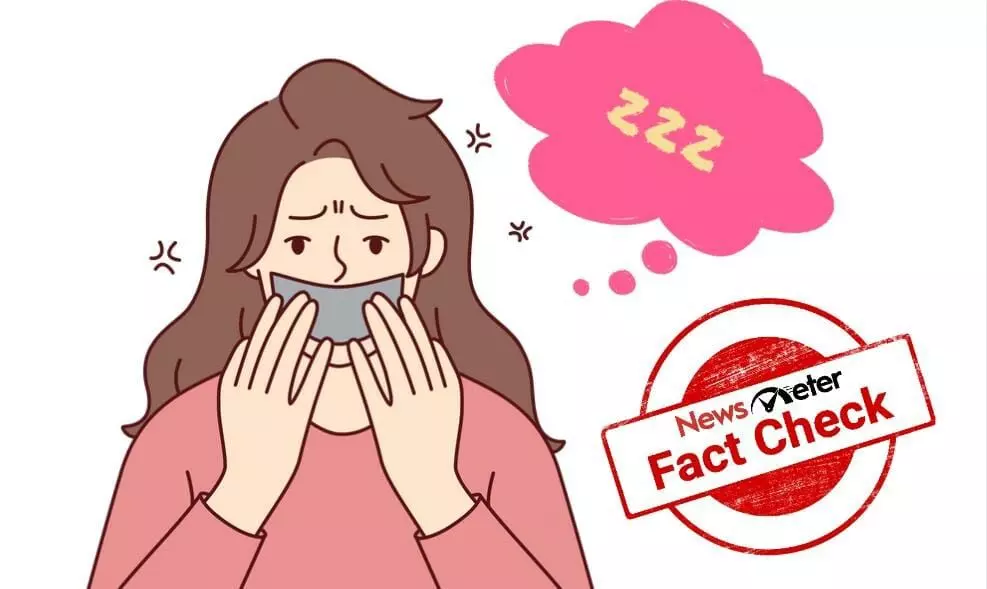Does taping your mouth shut at night help you sleep better?
A new viral health trend on TikTok claims that taping your mouth shut at night will help you sleep better and also improve other health conditions like bad breath, cavities, and brain fog.
By Sunanda Naik
Hyderabad: A new viral health trend on TikTok claims that taping your mouth shut at night will help you sleep better and also improve other health conditions like bad breath, cavities, and brain fog.
Sleeping well at night for at least 6-7 hours plays a crucial role in improving your mental and physical health. You play with it and it can take a serious toll on your daytime energy, productivity, emotional balance, and even your weight. In short, your sleep or say recharging time is really important.
Sleep apnea is a common sleep disorder marked by abnormal reductions in breathing while a person is asleep. These disruptions reduce the quality of sleep and, if left untreated, can lead to potentially serious health consequences.
Does taping your mouth shut while sleeping improve your sleep?
Let's find out.
FACT CHECK
According to the Sleep Foundation, the claim about mouth taping for a variety of conditions is completely anecdotal.
Anecdotally, people claim mouth taping eases a variety of problems, such as snoring, fatigue, concentration issues, bad breath, and excessive thirst at night. Most of these claims have not been scientifically studied. So far, research has only demonstrated one benefit of mouth taping: a reduction in snoring and tiredness in people with obstructive sleep apnea, according to the Sleep Foundation.
The article also warned and advised using a porous tape intended for use on human skin. Trying duct tape, masking tape, or another tape not intended for use on the body might be more likely to cause irritation or an allergic reaction.
According to Healthline, the risks of mouth taping far outweigh its benefits. Moreover, sleeping with your mouth closed reduces the risk of snoring, taping it shut could exacerbate breathing problems, it added.
Healthline also shared a few tips to get peaceful sleep at night:
· Waking up and going to bed at the same time every day.
· Creating a bedtime routine that focuses on unwinding.
· Reducing caffeine and alcohol use more than six hours before going to sleep
· Being patient with yourself.
While social media offers relevant and easily accessible information, please avoid taking medical advice from non-healthcare professionals, it concluded.
Lastly, Medical News Today wrote, "People with sleep disorders may find mouth tape helpful to regulate airflow through the nose. However, there is limited evidence on its use for all sleepers, so a person should consult a doctor before trying it."
Hence, the claim that mouth taping can improve one's sleep is false.
The claim lacks scientific studies and evidence.